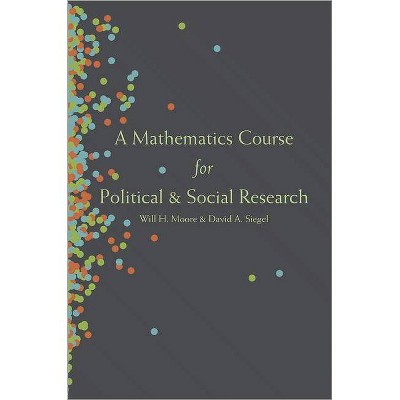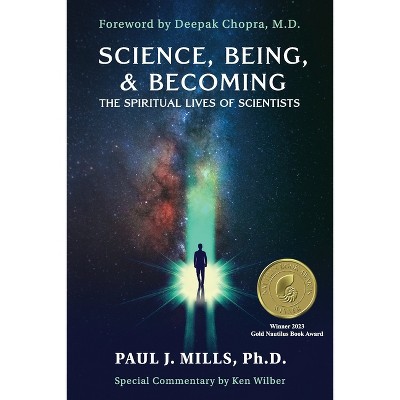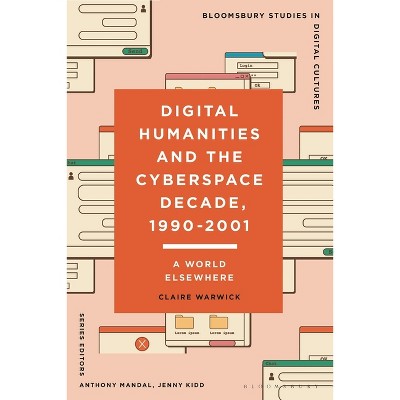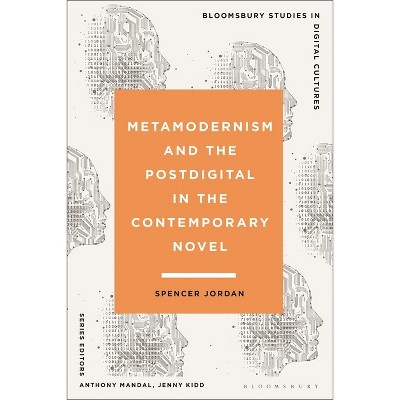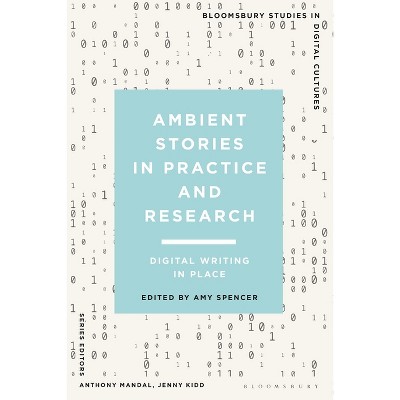Sponsored

Investigating Google's Search Engine - (Bloomsbury Studies in Digital Cultures) by Rosie Graham (Hardcover)
$90.99
In Stock
Eligible for registries and wish lists
Sponsored
About this item
Highlights
- What do search engines do?
- About the Author: Rosie Graham is Lecturer in Contemporary Literature and the Digital at the University of Birmingham, UK and co-director of its Digital Cultures Research Centre.
- 256 Pages
- Social Science, Media Studies
- Series Name: Bloomsbury Studies in Digital Cultures
Description
About the Book
"What do search engines do? And what should they do? These questions seem relatively simple but are actually urgent social and ethical issues. The influence of Google's search engine is enormous. It does not only shape how Internet users find pages on the World Wide Web, but how we think as individuals, how we collectively remember the past, and how we communicate with one another. This book explores the impact of search engines within contemporary digital culture, focusing on the social, cultural, and philosophical influence of Google. Using case studies like Google's role in the rise of fake news, instances of sexist and misogynistic Autocomplete suggestions, and search queries relating to LGBTQ+ values, it offers original evidence to intervene practically in existing debates. It also addresses other understudied aspects of Google's influence, including the profound implications of its revenue generation for wider society. In doing this, this important book helps to evaluate the real cost of search engines on an individual and global scale"--Book Synopsis
What do search engines do? And what should they do? These questions seem relatively simple but are actually urgent social and ethical issues. The influence of Google's search engine is enormous. It does not only shape how Internet users find pages on the World Wide Web, but how we think as individuals, how we collectively remember the past, and how we communicate with one another. This book explores the impact of search engines within contemporary digital culture, focusing on the social, cultural, and philosophical influence of Google.Using case studies like Google's role in the rise of fake news, instances of sexist and misogynistic Autocomplete suggestions, and search queries relating to LGBTQ+ values, it offers original evidence to intervene practically in existing debates. It also addresses other understudied aspects of Google's influence, including the profound implications of its revenue generation for wider society. In doing this, this important book helps to evaluate the real cost of search engines on an individual and global scale.
Review Quotes
Graham offers us a forensic and clearly articulated exploration of Google - as a company and a search engine - painting a lucid and unsettling picture of how search shapes our world.
Kylie Jarrett, Senior Lecturer, Department of Media Studies, The National University of Ireland, Maynooth
Revisits and pushes forward Google critique in significant ways, providing not just methods and techniques to unearth how Google shapes our memory but a firm foundation for considering how it steers what we ultimately come to know.
Richard Rogers, Chair in New Media and Digital Culture, University of Amsterdam, Netherlands
About the Author
Rosie Graham is Lecturer in Contemporary Literature and the Digital at the University of Birmingham, UK and co-director of its Digital Cultures Research Centre.Dimensions (Overall): 9.21 Inches (H) x 6.14 Inches (W) x .63 Inches (D)
Weight: 1.17 Pounds
Suggested Age: 22 Years and Up
Number of Pages: 256
Genre: Social Science
Sub-Genre: Media Studies
Series Title: Bloomsbury Studies in Digital Cultures
Publisher: Bloomsbury Publishing PLC
Format: Hardcover
Author: Rosie Graham
Language: English
Street Date: January 12, 2023
TCIN: 92371251
UPC: 9781350325203
Item Number (DPCI): 247-31-7807
Origin: Made in the USA or Imported
If the item details aren’t accurate or complete, we want to know about it.
Shipping details
Estimated ship dimensions: 0.63 inches length x 6.14 inches width x 9.21 inches height
Estimated ship weight: 1.17 pounds
We regret that this item cannot be shipped to PO Boxes.
This item cannot be shipped to the following locations: American Samoa (see also separate entry under AS), Guam (see also separate entry under GU), Northern Mariana Islands, Puerto Rico (see also separate entry under PR), United States Minor Outlying Islands, Virgin Islands, U.S., APO/FPO
Return details
This item can be returned to any Target store or Target.com.
This item must be returned within 90 days of the date it was purchased in store, shipped, delivered by a Shipt shopper, or made ready for pickup.
See the return policy for complete information.
Trending Non-Fiction

$4.59
MSRP $7.99
Save $5 when you spend $20 on select books
4.8 out of 5 stars with 123 ratings

$6.20
MSRP $10.95
Save $5 when you spend $20 on select books
4.8 out of 5 stars with 33 ratings

$7.09
MSRP $9.99
Save $5 when you spend $20 on select books
4.9 out of 5 stars with 46 ratings


